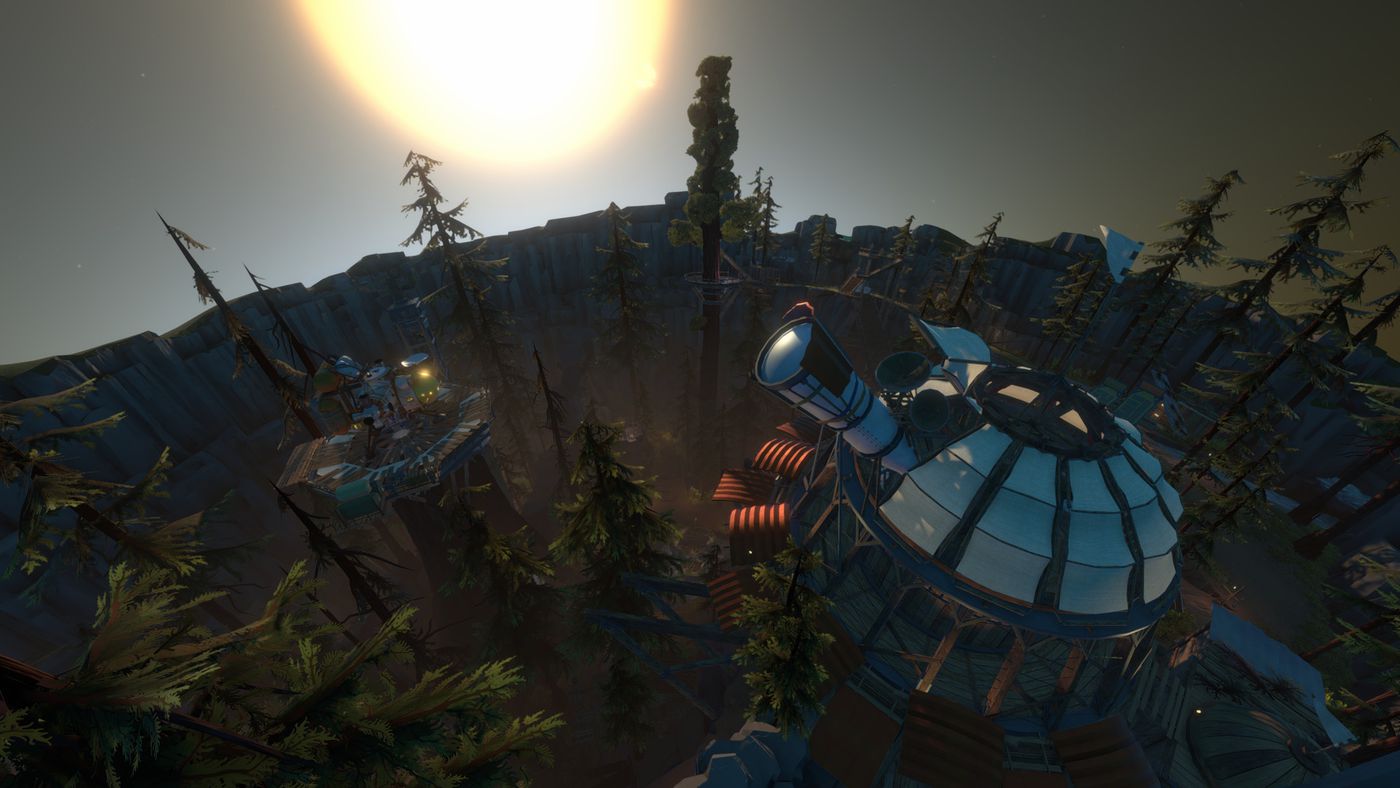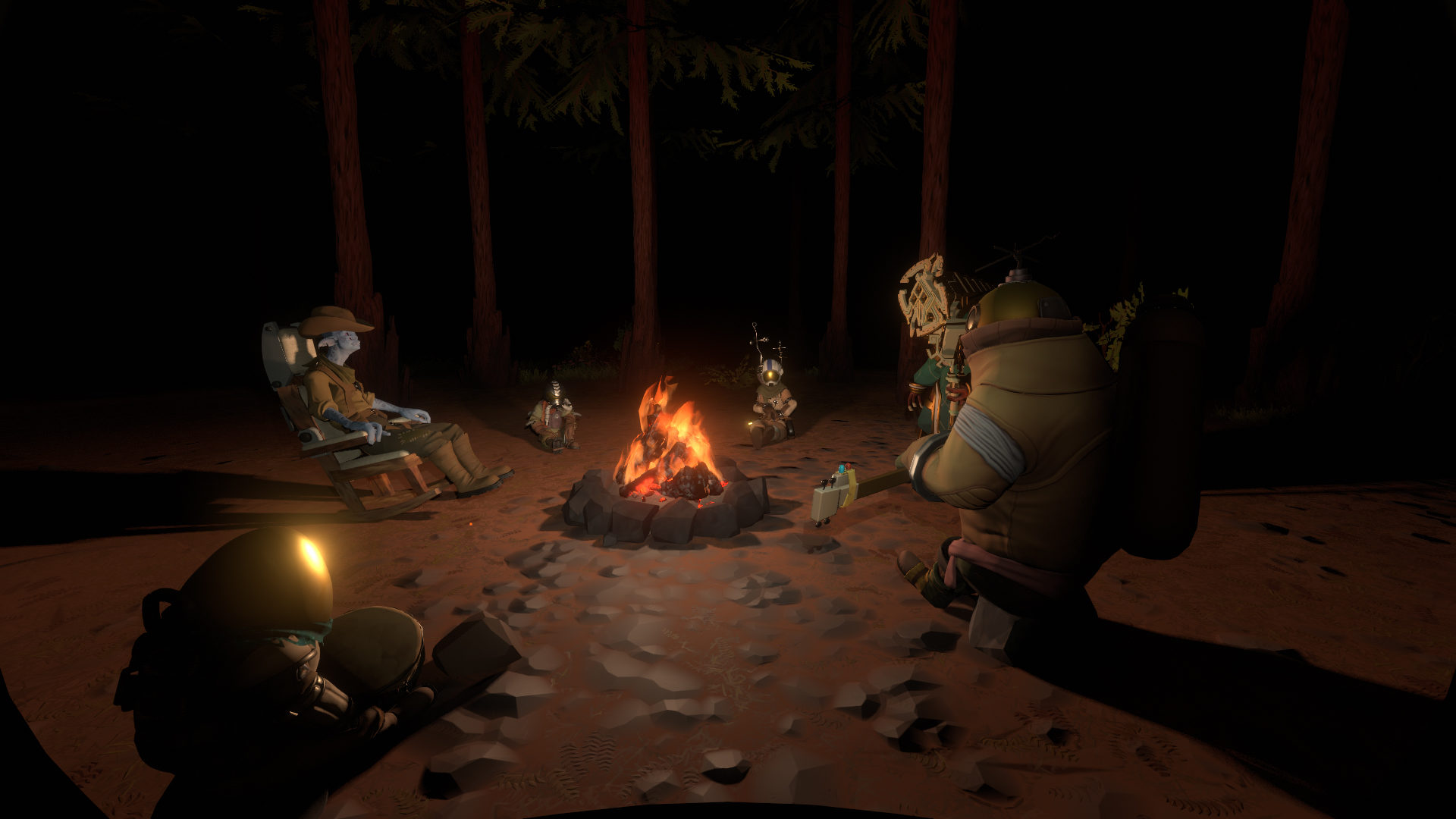- Outer Wilds doesn’t rely on the usual big reveals but instead offers an exploration of the insignificance of human existence in the vast cosmos.
- The time loop and inevitable supernova create a unique narrative tension that makes you feel like an explorer rather than a hero.
- The dialogue is thought-provoking, and the characters accepting their fate in the face of destruction is bittersweet and emotional.
Outer Wilds is one of those rare indie gems of a game that sneaks up on you. It seems simple at first – explore this little solar system in your unstable spaceship, poking around the ruins of an ancient Nomai civilization, all within a 22-minute time loop. And yet, there’s something so strangely fascinating about it.
As you dig deeper, it transforms into a mind-bending exploration of time, space, and the fundamental questions of existence. But, for me, the true brilliance of Outer Wilds lies in its ending. It’s an ending that has stuck with me long after I put the controller down, and it’s not talked about nearly enough.
Why It Matters: You get a refreshing and deep take on life, death, and the incredible power of human connections. This game differs from others that often focus on big and flashy moments.
The Mind-Bending Climax
You don’t need to be greeted with clear answers when you finally find the Eye. Outer Wilds masterfully devalues expectations. Instead of grand knowledge about space, things get kinda strange. The truth about reality seems to get solved around you.

Past, present, and potential futures twist and distort, offering disorienting yet beautiful glimpses of what could have been and might still be.
And then comes the actual gut punch: The universe is dying. Entropy has taken over, and stars are flickering out. It’s a tragic yet oddly accepting realization, a humbling reminder of our cosmic insignificance.
The Inevitable End
The inevitable, creeping destruction makes Outer Wilds’ endings so powerful. Your tiny solar system is doomed. The sun is going supernova, and you’re stuck in a 22-minute time loop where it happens repeatedly.
Early on, there’s this incredible pull of “I have to stop this!” It’s a heroic feeling, right? You chase clues, explore like crazy, and try everything to prevent this cosmic catastrophe. It’s the same drive that keeps us playing open-world games like Witcher 3 for hours, hoping for a different outcome.
But here’s the twist: you can’t stop it. The end is baked into the game. The shift from “hero” to “explorer” is a big part of the uniqueness of the endings.
Different Layers of Meaning
The best part about the ‘Outer Wilds’ endings is the openness to interpretation. Did you restart the universe? Did you transcend time itself? Were your actions even meaningful in the face of those cosmic forces? The lack of a neat, tidy answer leaves much room for reflection.
I found my own meaning in the journey itself. Discovering the vanished Nomai, exploring their strange technology, and piecing together their search for the Eye of the Universe was its reward. Even with the supernova hanging over my head, there was a strange peace in those acts of discovery.
That Last Emotional Get-Together
Anyone who’s reached the end of ‘Outer Wilds’ knows there’s some seriously mind-blowing dialogue right before the ending. Your fellow explorers gather around a campfire, sharing stories, playing music, and facing down that looming destruction with bittersweet acceptance. It hits on themes of mortality, purpose, and the beauty of existence incredibly.

The conversations, the music, and the whole vibe make me emotional, you know? It’s a stark and beautiful reminder that even if our actions are tiny in the grand scheme of things, living a life filled with wonder and shared moments is worthwhile.
Why the Ending Deserves More
The storytelling in ‘Outer Wilds,’ especially at its end, is some of the best, but it doesn’t often get its due. I get it; there are no big cinematic set pieces like Baldur’s Gate 3 and no explosions (except for the sun, obviously). It’s a quieter ending, more thought-provoking than a thriving “you saved the day!” moment.
But that doesn’t make it less impactful. If anything, the fact that the endings in ‘Outer Wilds’ can stir up this much emotion and reflection even without the usual video game bells and whistles is a testament to its strength. It’s the game that stays with you and makes you see the world differently. And for that, it deserves all the credit and then some.
Thank you! Please share your positive feedback. 🔋
How could we improve this post? Please Help us. 😔
[News Reporter]
Bawal is an MBBS student by day and a gaming journalist by night. He has been gaming since childhood, growing fond of the creativity and innovation of the industry. His career as a gaming journalist started one year ago, and his journey has allowed him to write reviews, previews, and features for various sites. Bawal has also been cited in reputed websites such as Screenrant, PCGamesN, WCCFTech, GamesRadar, and more.




